The 26th
LaureatePainting
Martial Raysse
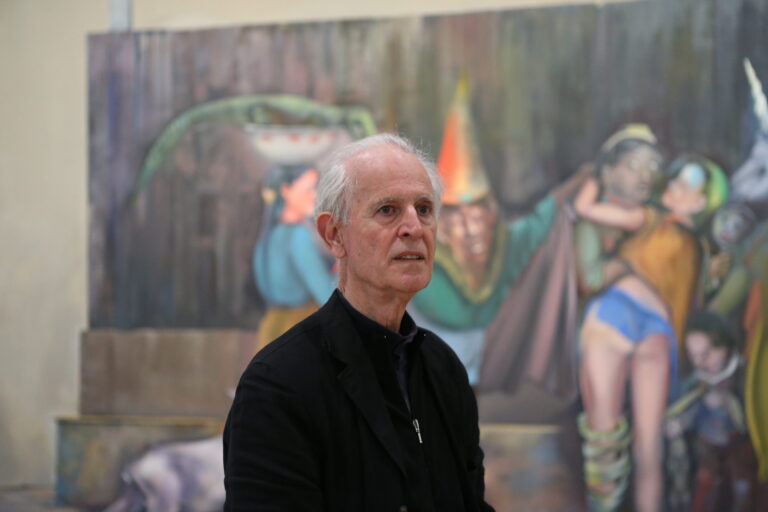
Martial Raysse is a multi-faceted, visionary artist whose constant experimentation has been driven by a search to show reality as it is. To this end, over the years he has worked in many different media, creating oil paintings, bronze sculptures, cubic objects, neon images and films. He started as a poet, publishing his first collection of poems in 1955. Two years later his collages, featuring a mixture of objects and poems, brought him to the attention of the art world when they were included in the Contemporary Artists’ Exhibition in Nice. This led, a year later, to a one-man exhibition that drew the critical acclaim of the poet and artist, Jean Cocteau. In the 60s, using mass-produced, commonplace objects, Raysse was a major figure in the French “Nouveau Réalisme” movement. During this period he moved to New York where, in many ways anticipating the Pop Art movement, he produced his highly acclaimed Made in Japan series. His return to live in the French countryside with his wife, a fellow artist, Brigitte Aubignac, in the 1970s marked a further creative transformation, producing work in all media, inspired by rituals and mythology. His recent work includes a large painting, Ici Plage, comme ici-bas (300×900 cm) in 2012. A major retrospection of his work opened at the Pompidou Centre in Paris in May this year.
Biography
Martial Raysse is a multi-faceted, visionary artist whose constant experimentation has been driven by a search to show reality as it is. His form and range of expression is remarkably diverse, creating oil paintings, bronze sculptures, cubic objects using neon signs and movies - expressing himself as he feels, when the mood takes him.
The strong colors so characteristic of Raysse's work can be seen to be the influence of having been born and brought up in the South of France. His father owned a ceramic factory in Vallauris where he used to play the French game of "pétanque" with Picasso, who was still relatively unknown at that time.
Raysse started painting seriously at the age of 12 but he was also keen to write and in 1955, he published his first collection of poems. Two years later, his collages, featuring a mixture of objects and poems brought him to the attention of the art world when they were included in the Contemporary Artists' Exhibition in Nice. This led, a year later, to a one-man exhibition that drew the critical acclaim of the poet, playwright and artist, Jean Cocteau.
In 1960, he became a part of the "Nouveau Réalisme" movement, representing the new reality of an industrial society through art; using mass-produced commonplace objects and things that had been thrown away. Raysse signed the movement's manifesto with Yves Klein and others and became a major figure in the avant-garde movement. The following year, he moved to New York. Three years later, he realized the Made in Japan series in which he recreated the famous masterpiece, La Grande Odalisque, using bright garish colors. He says he chose the title Made in Japan "Because at that time, I really admired Japanese products. They were cheaper and better. I said to myself that it would be fun to make Ingres that were cheaper and that worked better".
By adding flies and glass chips to those poster-like works, he was making a statement about traditional paintings and how he perceived their vanity and lack of originality.
In 1978, he bought a deserted farmhouse near Bergerac, a wine-producing town in the southwestern part of France. He and his wife, a fellow artist, Brigitte Aubignac, have made it their home and studio; enabling them to enjoy life in the country while still being able to create new work, including his large painting, Ici Plage, comme ici-bas (300×900㎝) in 2012. He is widely exhibited and this May saw a major retrospective exhibition opening in the Pompidou Centre, Paris.
Chronology
Participated in the Art of Assemblage exhibition at the Museum of Modern Art, New York
Director and writer, Le Grand Départ
Began to reside near Bergerac, southwest France
-
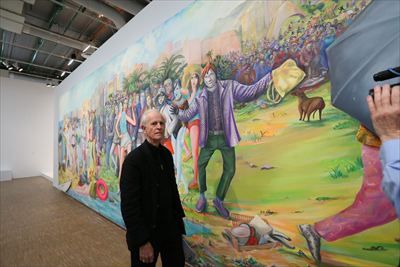
In front of Ici Plage, comme ici-bas
-
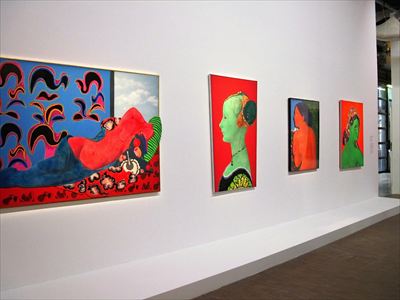
Made in Japan series
-
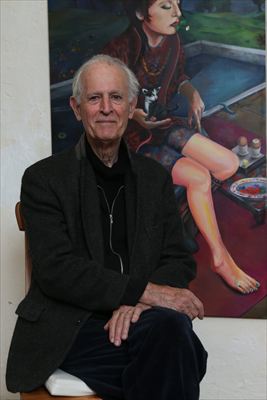
At his home in the suburbs of Bergerac
-
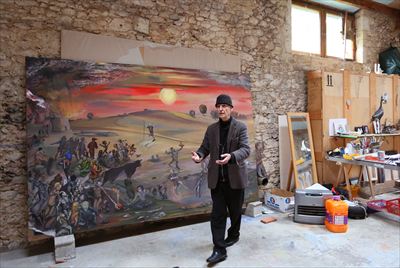
At his studio in the suburbs of Bergerac
-
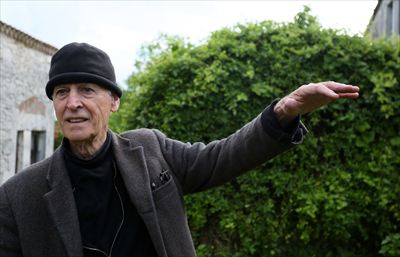
At his home’s front yard
-
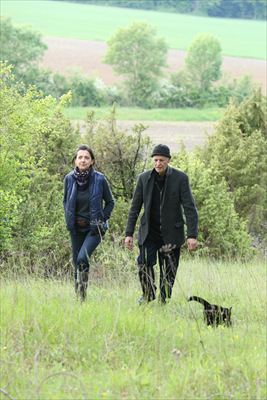
At his home’s backyard
